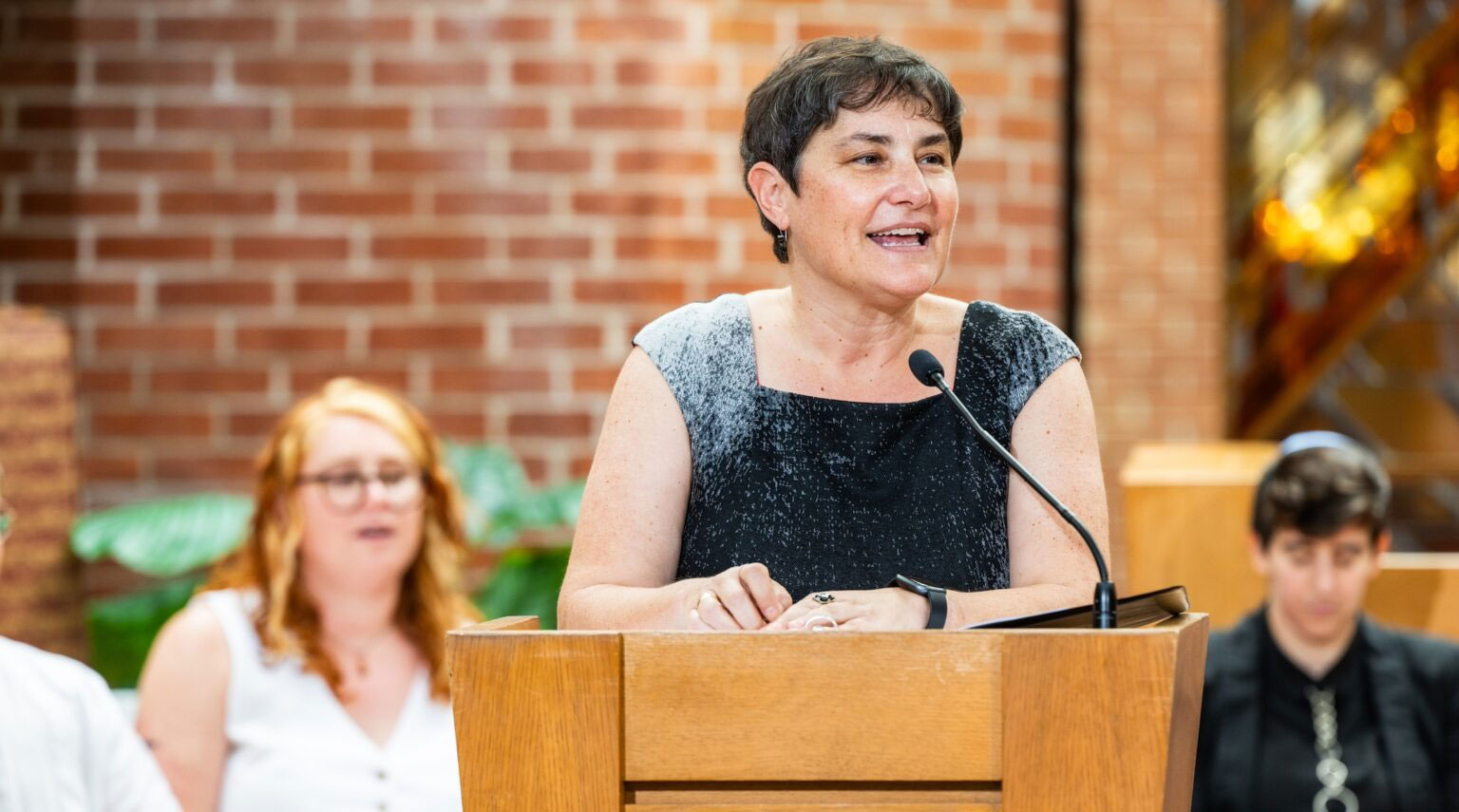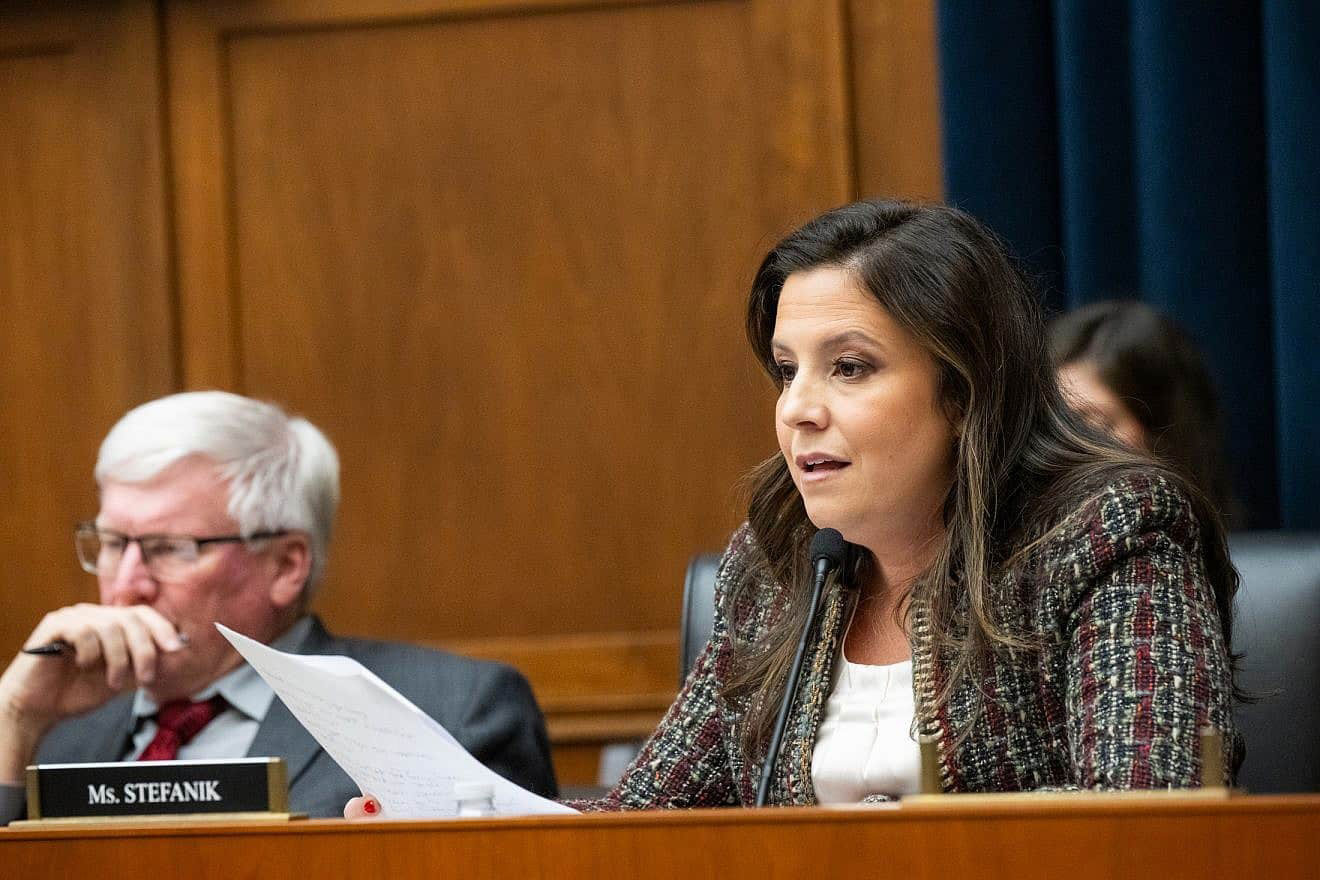Courtesy of JNS. Photo credit: Parentingupstream/Pixabay
Stethoscope
(JNS) — More than 75% of medical professionals and students who identify as Jewish say that they have been exposed to antisemitism, and since Oct. 7, 2023, medical publications and social media posts by those in the field about Jew-hatred have increased by five times and posts by medical professionals promoting antisemitism are up by four times.
That’s according to a new article in the Journal of Religion and Health by researchers in Pennsylvania, Massachusetts, Florida, New York, Rhode Island and Illinois.
“A small but vocal and prominent minority of healthcare professionals and/or students are exposing the broader community to antisemitic rhetoric,” Dr. Daniella Schwartz, assistant professor of medicine in the rheumatology department at the University of Pittsburgh Medical Center and lead author of the study, told JNS.
Schwartz and her colleagues analyzed studies indexed by the archive PubMed between 2000 and 2023 that had the words “antisemitism,” antisemitic” or “Holocaust” in the title or abstract. They also used an artificial intelligence tool to study social media posts from some 220,405 accounts on X of people who self-identified as U.S. healthcare professionals and also surveyed members of four national groups of Jewish medical professionals and students. (The study drew on Foundation to Combat Antisemitism research as well.)
“All three analyses suggested growing awareness and evidence of rising Jew-hatred within the U.S. healthcare community,” the researchers wrote. “Posts about Jews and Judaism, including posts promoting antisemitic conspiracy theories, were prevalent within the social media accounts of self-identified healthcare professionals. Most surveyed U.S. medical students and healthcare professionals experienced Jew-hatred and reported a marked increase following Oct. 7, 2023.”
From 2000 to 2023, the scholars found a tenfold increase in publications about Jew-hatred, which “included an 18-fold increase in manuscripts about contemporary issues rather than historical events such as the Holocaust, significantly outpacing the overall increase in PubMed-indexed annual publications over the same period.”
They also found a sevenfold increase in social media posts from healthcare professionals about Jews, Judaism and antisemitism after Oct. 7, “with 453,559 posts appearing between Oct. 7, 2023 and March 17, 2024.” Posts about Israel were up 43.4-fold post-Oct. 7 and discussions about the Holocaust went up 1.6-fold and about Jew-hatred 5.4-fold, the scholars found.
“Furthermore, there was a 24-fold increase in sentiments of fear within social media conversations about Jews and Judaism,” they wrote. “Although increased fear could be multifactorial, this combination of findings led us to hypothesize that these trends in social media conversations might reflect increased antisemitism within the healthcare community.”
Schwartz told JNS that she and her colleagues had two goals in publishing their findings.
“First, we hope to normalize this conversation so that it is no longer ‘toxic’ for us to discuss antisemitism within our field,” she said. “This would entail having antisemitism and religious discrimination included in the diversity, equity and inclusion conversation as called for in the White House’s U.S. National Strategy to Counter Antisemitism.”
“If our community doesn’t even accept that Jewish healthcare practitioners, students are experiencing antisemitism — if the entire topic is ‘radioactive’ and ‘untouchable’ — then we can never fix the problem,” she said.
She and her colleagues also hope to educate the public about anti-Zionist Jew-hatred.
“We hope to start teaching our community that anti-Zionist antisemitism is a contemporary form of antisemitism that is not ‘just criticism of Israel’ but is instead a normalization of old antisemitic tropes through a new lens,” she said. “It is only through increased awareness that we can recognize antisemitism as a problem for medicine and all humanity and start to combat it.”
In their paper, Schwartz and her colleagues use the International Holocaust Remembrance Alliance’s working definition of Jew-hatred.
She told JNS that the IHRA definition is widely endorsed and accepted, including by the U.S. Departments of Education and of State, as well as by the Lancet Commission on Medicine, Nazism and the Holocaust.
“The IHRA definition makes it very clear that you can criticize Israel without being antisemitic,” she said. “However, there is a distinction between criticism of Israel versus anti-Zionist antisemitism, which delegitimizes Israel’s existence.” Many of the criticisms of the IHRA definition “are essentially employing a straw man argument to try to normalize anti-Zionist antisemitism,” she added.
“When it comes to antisemitism, professional organizations and journals have an unfortunate tendency to selectively adopt certain attitudes when addressing the Holocaust and then abandon them when addressing anti-Zionist antisemitism,” Schwartz told JNS.
She noted that several medical journals endorsed the IHRA definition formally, “but subsequent editorials published in those same journals referred to Israelis as ‘Nazis,’ which is an IHRA-defined instance of antisemitism as well as a Holocaust inversion.”
“We found these occurrences to be disturbing not just in their antisemitism but also in their hypocrisy,” she said. “Part of our response is to point out that at least some of the IHRA critics are hypocritically endorsing this definition under certain circumstances and then repudiating it in other situations.”
In addition to calling Israelis “Nazis,” major medical journals have also “referred to Gaza as a concentration camp and casually discussed the ‘genocide’ in Gaza,” Schwartz said. “These are large, well-known journals that are read by millions of physicians, and it is very difficult to be in the field without having at least a peripheral awareness of the editorials they are publishing.”
More than one-third of respondents to the survey the researchers conducted said that they had seen Jew-hatred in medical or scientific publications, according to the article.
“Rising antisemitism in the medical field has grave potential implications for the future of healthcare in America,” the researchers wrote. “This could include reduced enrollment in medical schools, increased mental health issues and physician burnout, loss of physicians to early retirement and/or reluctance of Jewish-identifying patients to seek treatment in hospitals or institutions associated with antisemitic incidents.”
Schwartz told JNS that it is “unexpected” to see so much Jew-hatred in medicine, even academic medicine because medical trainees tend to be older and more mature than their counterparts in other fields.
“One also wonders how this amount of hatred is compatible with the practice of medicine, which is a healing profession,” she said.





